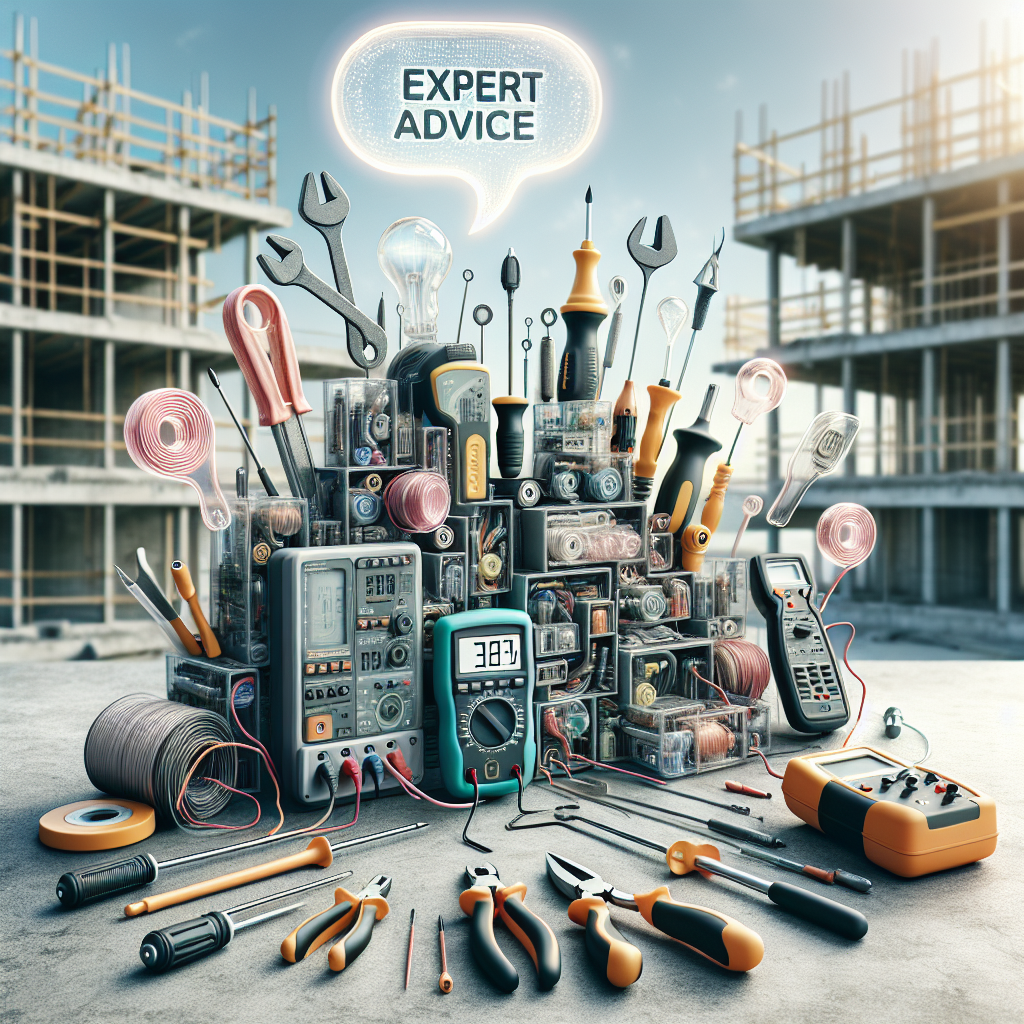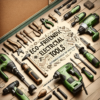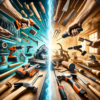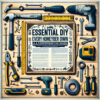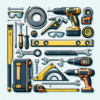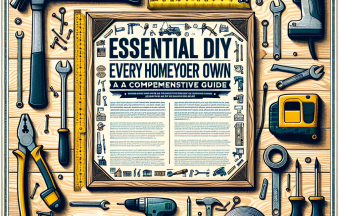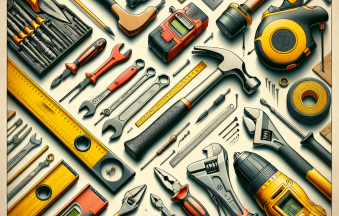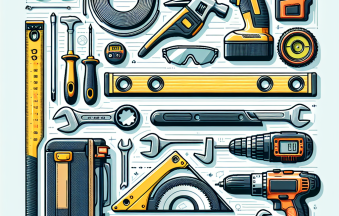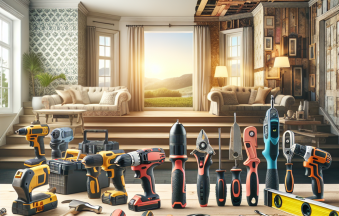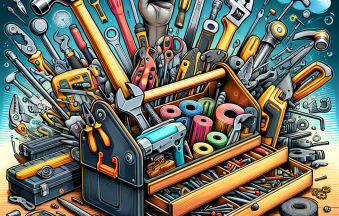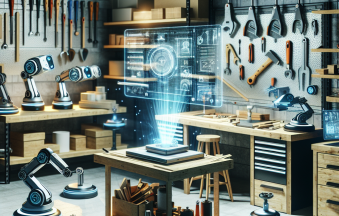Diving into a DIY endeavor can be profoundly satisfying, yet possessing the appropriate tools at your fingertips is vital for achieving success. Whether you’re engaged in a home makeover, cultivating a stunning garden, or merely repairing a dripping faucet, comprehending the various types of DIY tools can empower you to approach any project with assurance. In this article, we will examine essential DIY tools across multiple categories, ensuring you are adequately prepared for your next home assignment.
Household Tools
When considering household tools, we generally mean instruments that assist with overall repairs and maintenance. Basic household tools comprise a dependable drill, a robust ladder, and a simple toolbox stocked with necessary hand tools like screwdrivers, pliers, and a measuring tape. Investing in high-quality tools can save you expenses over time, as they last longer and function better.
Essential Household Tools
- Power Drill: Perfect for drilling holes and driving screws, a multifunctional power drill can simplify your tasks significantly.
- Ladder: A reliable ladder is crucial for accessing elevated areas safely during home maintenance and painting jobs.
- Toolbox: Keeping smaller tools organized in a toolbox allows you to quickly locate what you need when required.
Construction Materials
Construction materials are pivotal for larger initiatives, particularly if you’re building or renovating any part of your residence or garden. Materials such as plywood, drywall, and lumber are frequently utilized in numerous projects, from wall framing to final touches.
Selecting Appropriate Construction Materials
When picking construction materials, take into account the function and location. For instance, moisture-resistant products are crucial for bathrooms, while sturdier selections are necessary for structural tasks. Always verify local regulations on construction materials to ensure adherence.
Electrical Instruments
Electrical tasks necessitate a specific range of instruments for safety and precision. An essential multimeter can aid in measuring voltage, current, and resistance, making it indispensable for DIY electrical efforts. Additionally, having a few fundamental hand tools, such as wire strippers and pliers, will be beneficial.
Key Electrical Instruments
- Multimeter: This adaptable instrument measures electrical current and can effectively assist in diagnosing electrical problems.
- Wire Strippers: Ideal for removing insulation from wires to simplify connections.
Fasteners & Hardware
Fasteners such as screws, nails, and anchors are often disregarded but are essential for maintaining everything assembled. Understanding the various categories of fasteners available can significantly affect the stability and longevity of your projects.
Fundamental Fasteners & Hardware
- Screws: Available in numerous materials and sizes, screws are frequently best suited for fastening materials together.
- Nails: Excellent for rapid solutions, nails can typically be driven into surfaces without pre-drilling.
- Anchors: When installing heavy objects on drywall, employing suitable anchors is critical for support.
Kitchen & Bathroom Instruments
Home enhancement assignments in kitchens and bathrooms can elevate both practicality and appearance. Crucial tools for kitchen and bathroom renovations encompass standard plumbing instruments, tile cutters, and caulking guns.
Important Kitchen & Bathroom Instruments
- Plumbing Wrench: This instrument is a necessity when addressing plumbing fixtures.
- Tile Cutter: Excellent for achieving accurate cuts in tiles, resulting in cleaner and more professional installations.
- Caulking Gun: Ideal for sealing gaps and safeguarding your surfaces from moisture.
Light Fixtures & LEDs
Illumination significantly impacts the atmosphere of your home. Selecting the appropriate type of bulb can enhance efficiency and provide sufficient lighting. Investing in energy-efficient LED bulbs not only lowers energy expenditures but also lasts dramatically longer than conventional bulbs.
Choosing Light Fixtures
Remember to consider brightness levels (measured in lumens) and the color temperature (measured in Kelvins) when selecting light fixtures. Warm light (around 2700K) is generally favored for living spaces, while cooler shades (5000K and above) are more suitable for task-oriented environments.
Light Fixtures & Fans
Proper lighting and air circulation can transform any area. Fans also aid in circulating air, enhancing comfort levels within your home. Basic fan installations can be accomplished using simple electrical instruments and safety measures.
Light & Fan Necessities
- Circuit Tester: Ensures it’s safe to work on light fixtures or fans.
- Mounting Kits: Necessary for securely installing fans or light fixtures.
Measuring Instruments
Precise measurements are the foundation of any DIY initiative. Investing in trustworthy measuring instruments, such as Measuring Tape, Level, and a Square, will help guarantee that everything fits seamlessly.
Key Measuring Instruments Include:
- Measuring Tape: A multifunctional instrument that ensures measurements are accurate.
- Level: Essential for hanging artwork or shelves straight.
- Square: Useful for marking right angles during cuts and installations.
Painting & Wall Materials
Ultimately, no DIY endeavor is finished without paint and wall materials. Investing in high-quality paintbrushes, rollers, and painter’s tape will enhance your painting experience, ensuring sharp lines and a flawless finish.
Fundamental Painting & Wall Materials
- Paint Brushes: Different sizes aid in reaching tight spaces and providing various finishes.
- Painter’s Tape: Ensures sharp lines and protects surfaces that shouldn’t be painted.
Equipped with these tools, you’re ready to tackle a range of DIY projects at home. Whether you’re painting a space, installing lighting, or constructing furniture, having the suitable tools can make all the difference. So prepare yourself, get organized, and relish the accomplishment of completing your projects!

